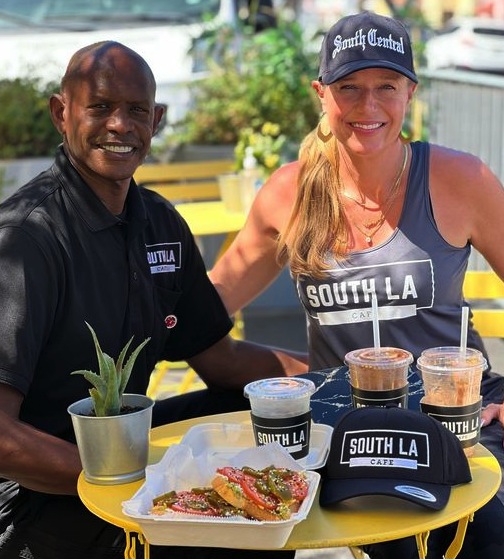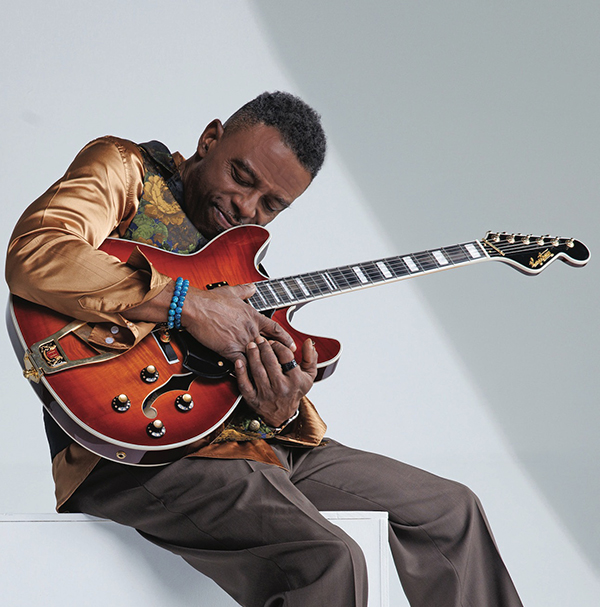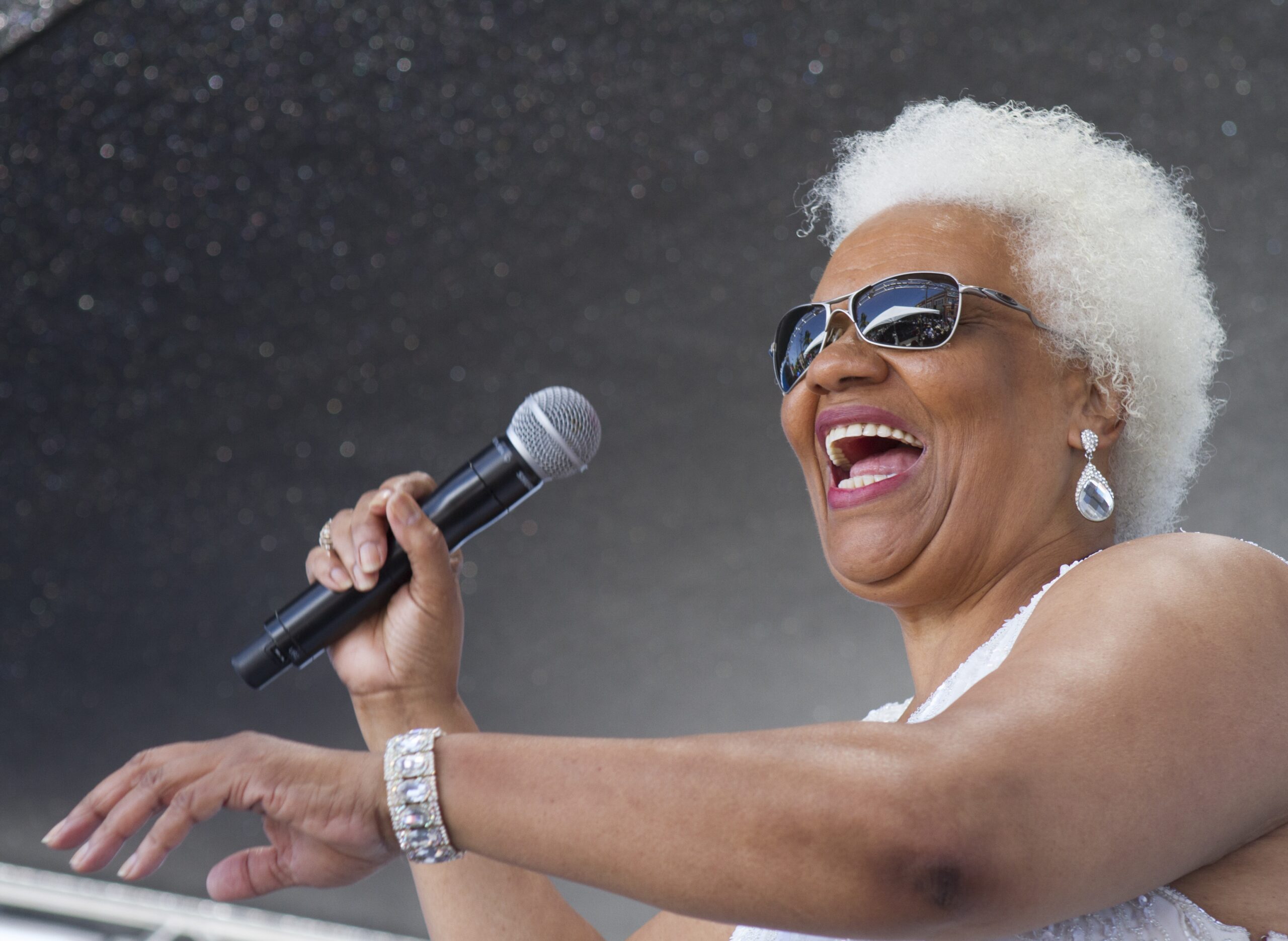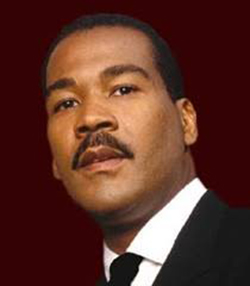Black German conductor to debut at Hollywood Bowl

By Darlene Donloe
Contributing Writer
It’s 4 p.m. on a Wednesday in London and Kevin John Edusei is preparing to conduct Puccini’s “Madama Butterfly” that night at the Royal Opera House.
An incessantly busy conductor who navigates the world 60% of the year to share his talent, Edusei, a 47-year-old Black, German conductor is taking time out before the performance to speak via phone about his upcoming debut at the iconic Hollywood Bowl where he will conduct Stravinsky & Khachaturian (Khachaturian’s “Violin Concerto Spartacus Suite No. 2” and Stravinsky’s “The Firebird Suite – 1919 Version”) on July 30 with the Los Angeles Philharmonic and Martin Chalifour on violin.
When Edusei takes the stage, he will stand where American composer-conductor William Grant Still once stood. Grant Still, dubbed the “dean of Afro-American composers,” made history as the first Black conductor to direct a major U.S. orchestra when he conducted the LA Philharmonic at the bowl in July 1936.
Edusei also will stand on a raised podium where Thomas Wilkins, who is Black and the current principal conductor at the Hollywood Bowl, now stands. A married, father of three, Edusei lives in Munich.
He’s willing to talk about everything and does so easily with his thick, German accent.
Talking to Edusei, who is unfazed by his celebrity, is like talking to a friend. He’s interesting, inquisitive, genuine, and holds a thoroughly engaging conversation. He talks straightforwardly about being a Black and a German man in a traditionally white symphonic world. His presence in that world has been, in its own way, an inspirational game-changer.
Since entering the classical music world, his career has exploded with excessive speed making him almost as highly sought after as a rock star.
The product of a Ghanaian father and German mother, Edusei, tall and slim, wears both his caramel-colored skin and his German heritage with pride.
His presence on stage demands attention and respect. His achievements since he became a conductor when he was in his mid-20s are impressive, having conducted orchestras throughout Europe and the United States and maintaining a long-standing relationship with the prestigious Chineke! Orchestra, a British ensemble that is the first professional orchestra in Europe to be made up of majority Black and ethnically diverse musicians.
A true believer in the power of music, Edusei is known for wearing his passion for music on his sleeves.
I spoke to Edusei via phone while he was in London.
DD: What is it about music?
KJE: Music reaches my deepest emotions. It makes me tremble and shake from the inside. It also connects people and has a tremendous power in connecting people from different cultural backgrounds and nations. It’s a unifying language. Music brings people together. Art is there for people to collaborate.
DD: Explain the life of a conductor.
KJE: The life of a conductor has different parts. One part of it is being at home and having the time in solitary study to prepare scores that you’re about to conduct. Traveling to the orchestras is a huge part of our life. It’s also important artistically to have this exchange and get different ideas and perspectives of the music. It can be draining. Going across the Atlantic is a hurdle.
DD: How often are you on the road?
KEJ: I’m on the road about 60% of the time. It’s a tough challenge for any family. It’s a family-unfriendly lifestyle. When I’m home I try to compensate and try to be present for my children. When I’m away, my wife has a huge job — and she works. I’m truly thankful.
DD: What happens to you when you conduct?
KJE: It is emotional and it’s also like a beam of energy is floating through you. You are there to guide the stream of energy through what the musician produces, the physical sound, and the emotions that come with it. It’s an extreme privilege. We conductors have to be humble about it. We are the only ones on stage that don’t produce a sound.
DD: You were the chief conductor of the Munich Symphony Orchestra? Why did you leave?
KJE: I was there from 2014 to 2022. I felt it was needed after working for so long. I needed to spread my wings and find new artistic collaborations. I was also the chief conductor at the Bern Opera House (Switzerland). Traveling between those two countries didn’t allow me to get to know other orchestras. Guest conducting is important. It didn’t allow me to do it.
DD: You are leaving your post as the principal guest conductor of the Fort Worth Symphony Orchestra?
KJE: Yes, this is my last season. I’m super thankful that they introduced me to the American scene. I love the orchestras in America. The LA Philharmonic is a dream come true. I have listened to them on CD since I was a teenager.
DD: Your debut performance is on July 29. When do you get to LA and what is the rehearsal schedule?
KJE: I think I get in the day before. Rehearsal time at the bowl is limited. I’ll get one decent rehearsal and then the concert. We covered it. I’m super excited to meet this fantastic orchestra. The orchestra is so great. They are already familiar with the work. Not having a lot of rehearsal only works because the orchestra is so fantastic.
DD: Explain what you do when you move your arms to conduct the orchestra.
KJE: I can’t explain it (laughs). It’s a mystery. Let me try. We are trying to find body language that brings out the right sounds we see in a printed score of music. It’s like I’m cooking. Hopefully, you like the dish.
DD: I read that you don’t necessarily like the term Afro-German. You are of Ghanaian and German ancestry, correct?
KJE: I’m German. I was born in Germany. There is a debate on how you identify. Using Afro, I understand it. If you call me that, it’s fine.
DD: Do people ever dispute your German heritage because you’re Black?
KJE: Absolutely, it happens. My mother tongue is German. They are surprised to hear a Black man speak German without any mistakes.
DD: Have you ever been called the ‘N’ word? If so, was it in or out of Germany?
KJE: Yes, the first time was when I was 3 years old in kindergarten. We have to be careful about what’s happening with our children.
DD: What are your thoughts on racism?
KJE: It is absolutely exhausting. It’s a long road we have to do. The fight against racism is important. We have to be vocal about it. It influences our surroundings. If you see something that’s not right, be vocal about it. It doesn’t have to be in an aggressive way.
DD: In what way has your race either helped or hindered your career?
KJE: I can’t possibly answer that question. I wouldn’t know what other people thought of my race. I can tell you one thing. I have encountered situations where I polarized people. Either people find it super that I’m a Black person or they have a problem with it. Not much middle ground. I must bring them together and say, ‘I’m just a normal guy. Let’s make music together.’
DD: How did you become interested in classical music?
KJE: It always played a huge role in my family life. My mother’s mother was an opera singer. She also was our first piano teacher. I had a very strong and personal connection to this wonderful woman and the music she brought with her. My father was a great music lover. Whenever he would come home he would put on classical records and listen to orchestras. I was exposed early. They took me to concerts at the age of 5 or 6. I hated classical at first and then something changed and I couldn’t get enough of it. It can be overwhelming or too much in the beginning. It’s a very intense experience to have. Once you stay with it you’ll find how deep it is.
DD: What music is on your phone right now?
KJE: I listen to a wide array. I’m a huge jazz fan. I’ve traveled long distances to hear Keith Jarrett with Charlie Haden and Jack DeJohnette at the North Sea Jazz Festival. I’m interested in electronica music. I like Radiohead and Björk. If I was on a lonely island and I could take some music, nine out of 10 would be classical.
Darlene Donloe is a freelance reporter for Wave Newspapers who covers South Los Angeles. She can be reached at ddonloe@gmail.com.





